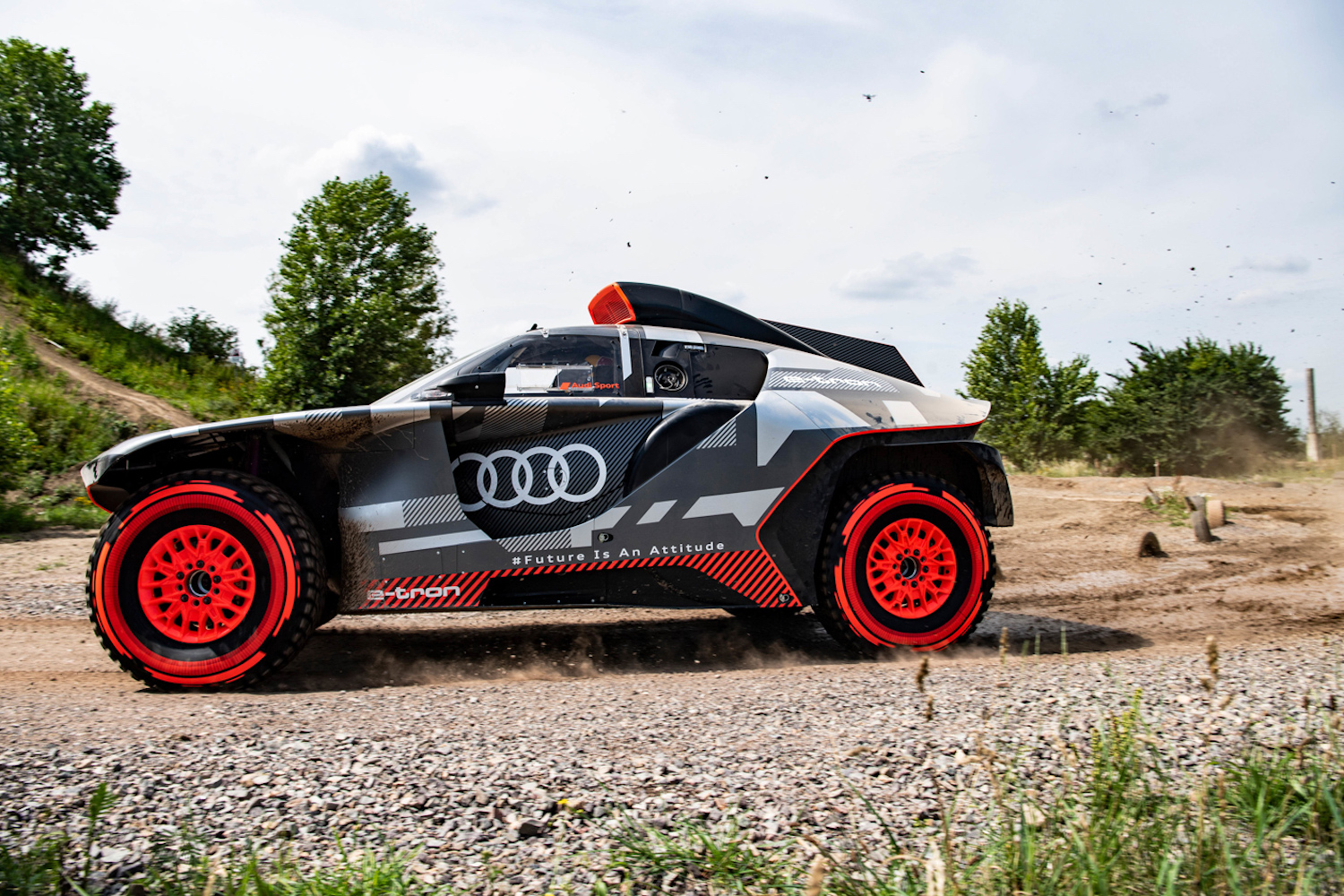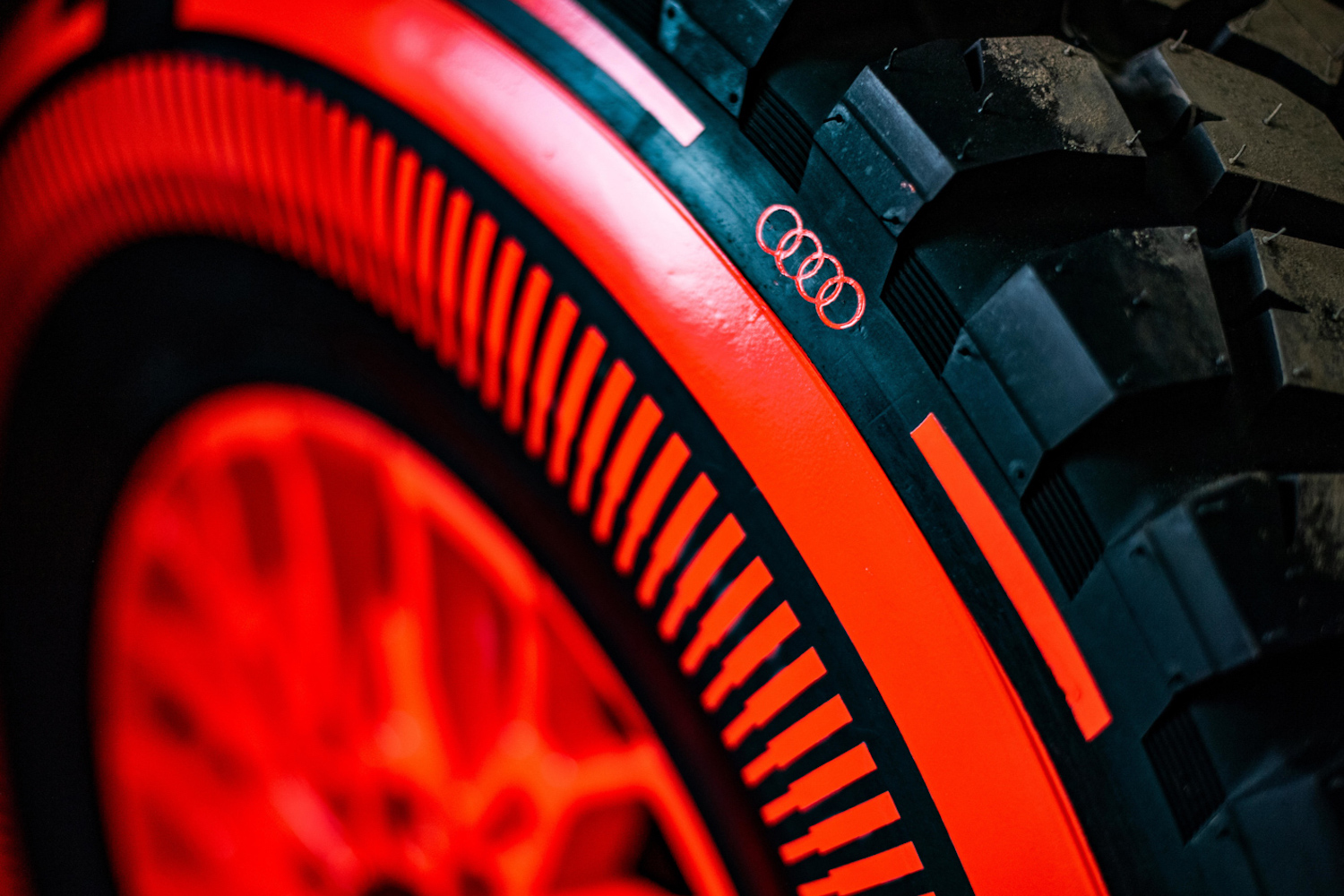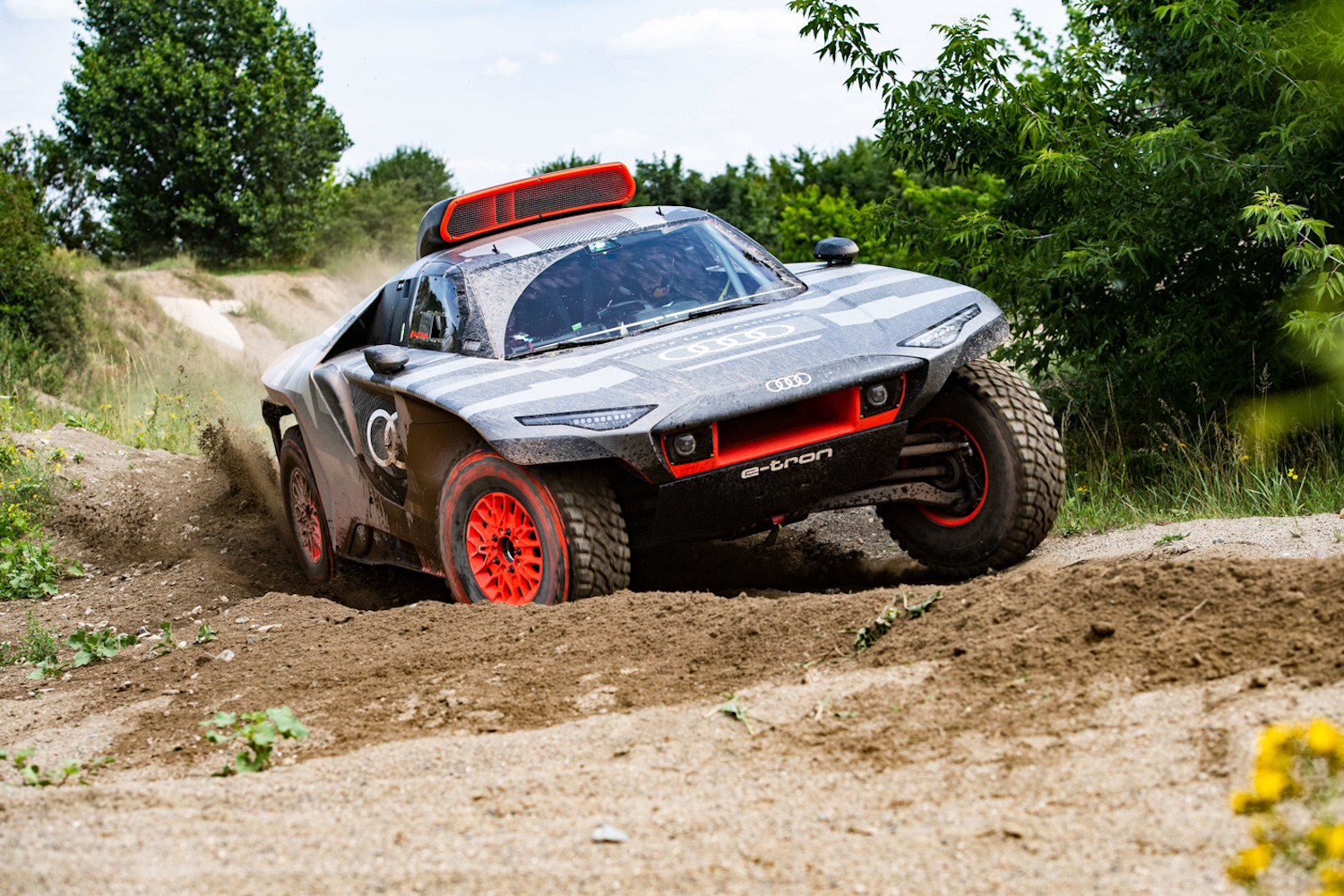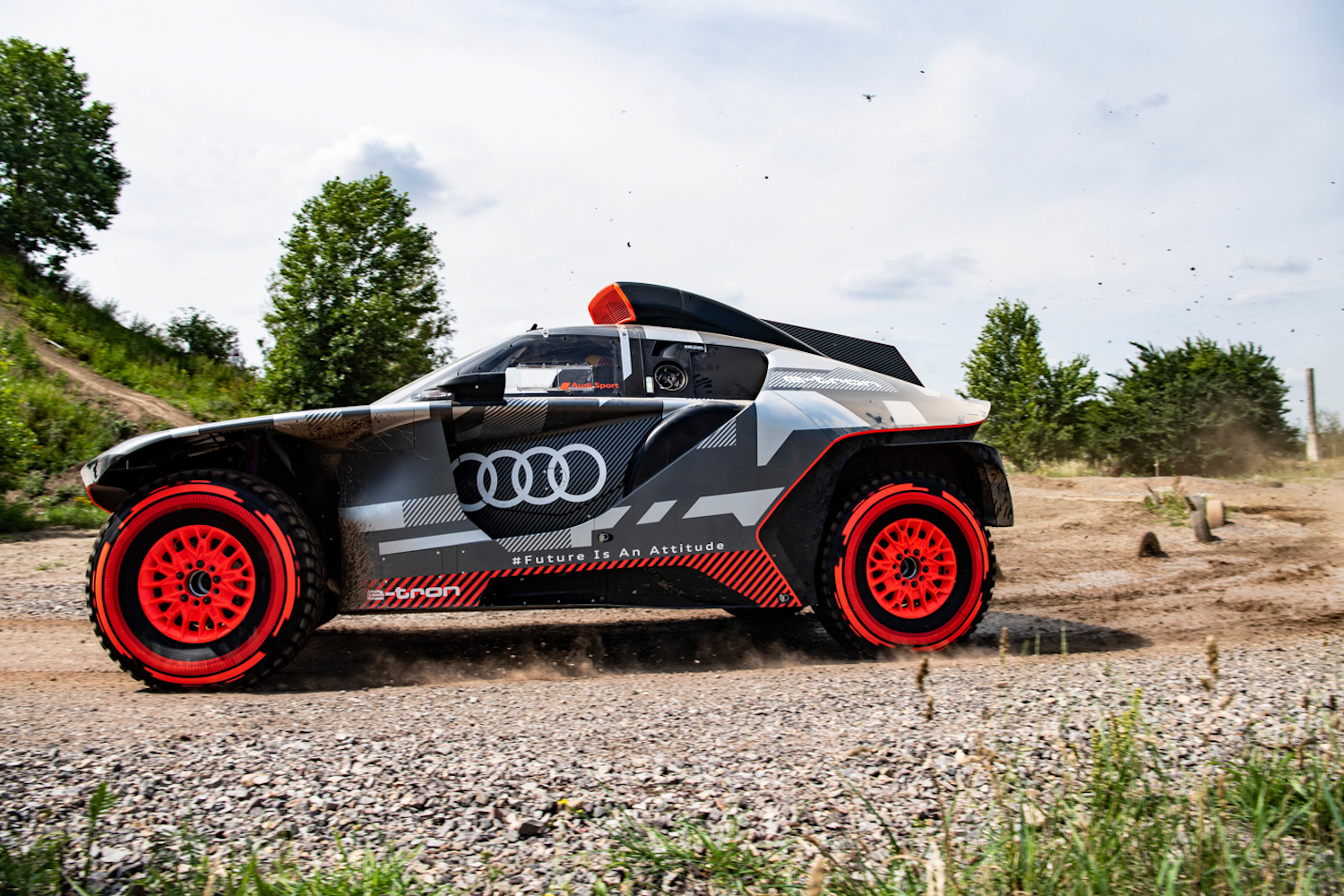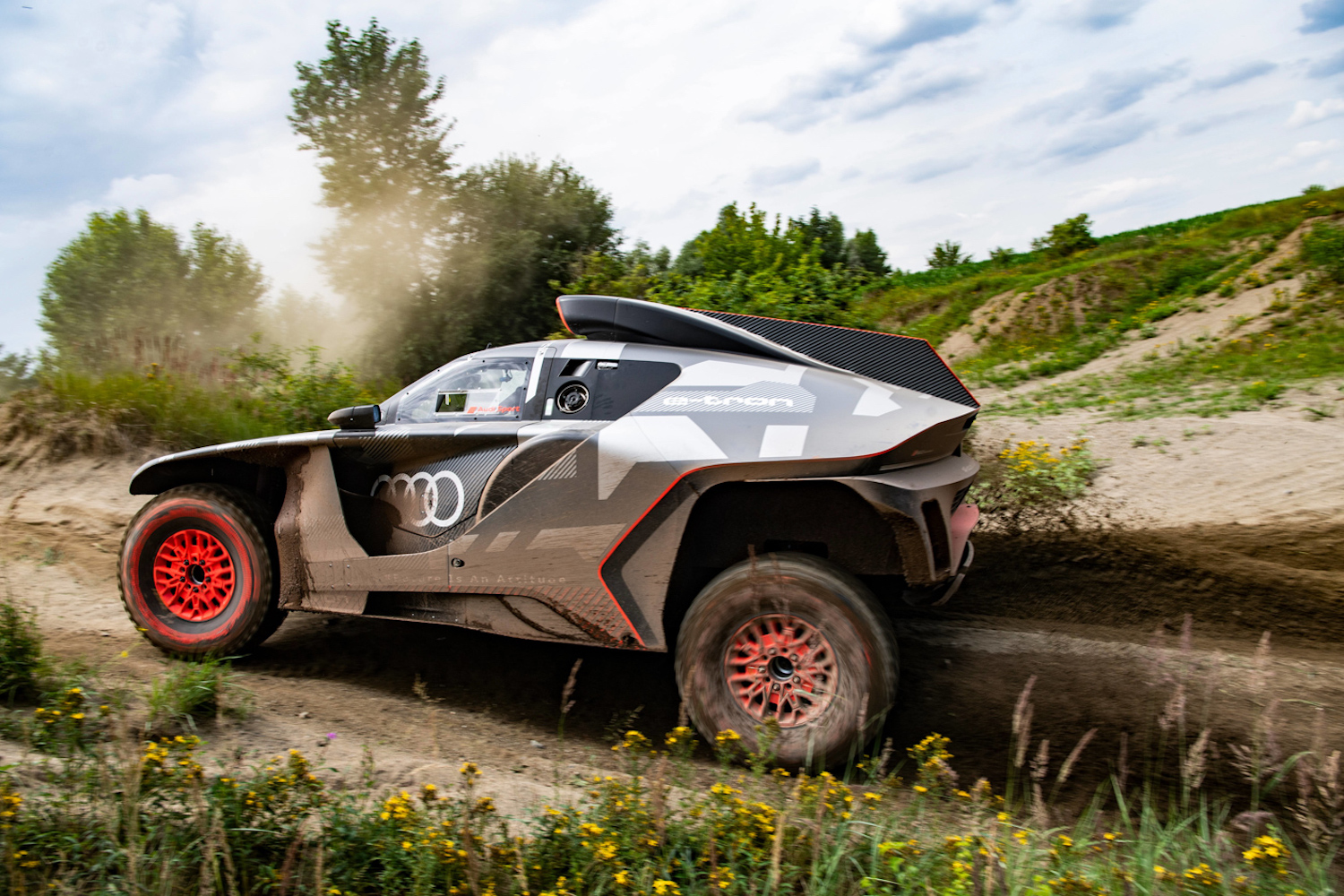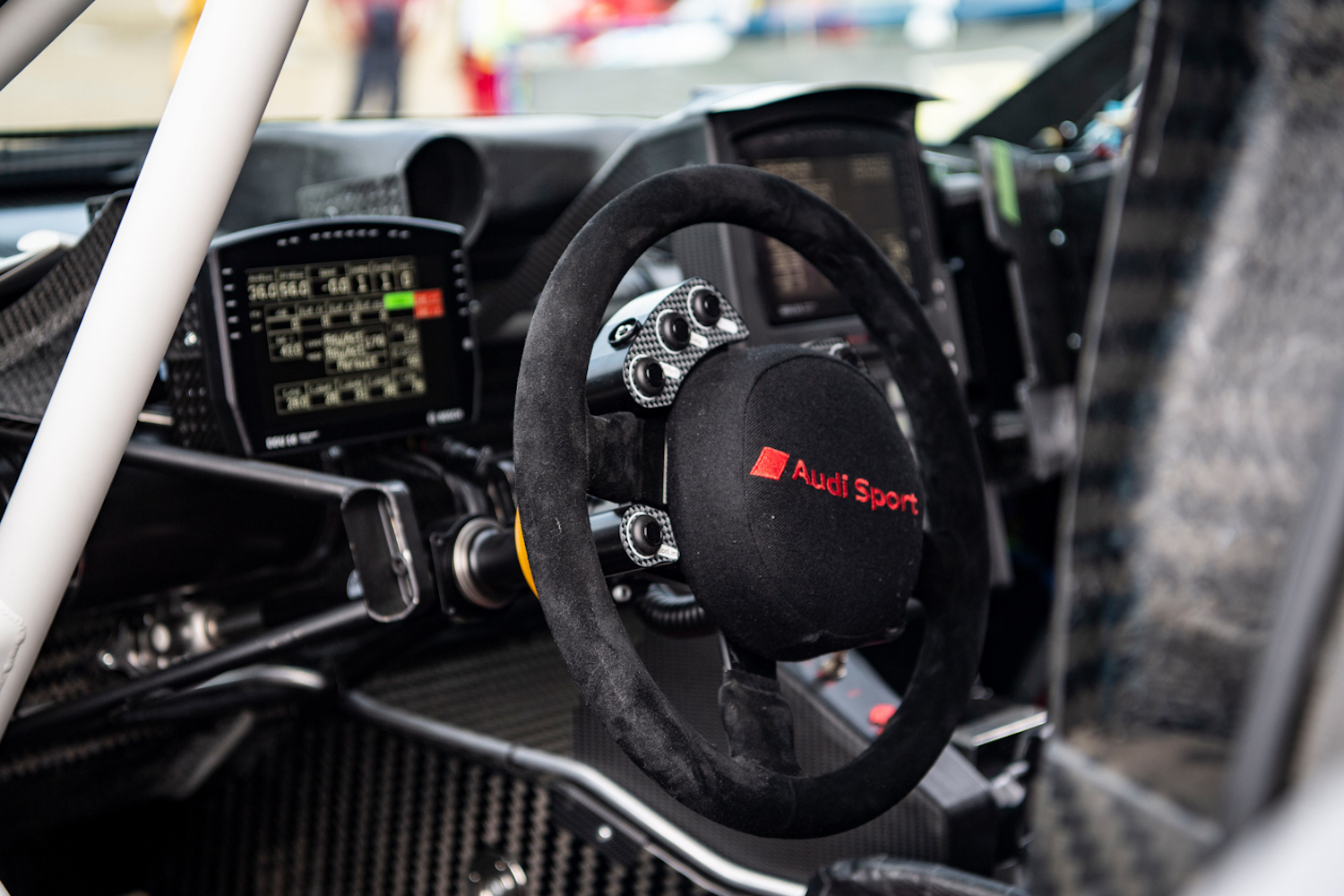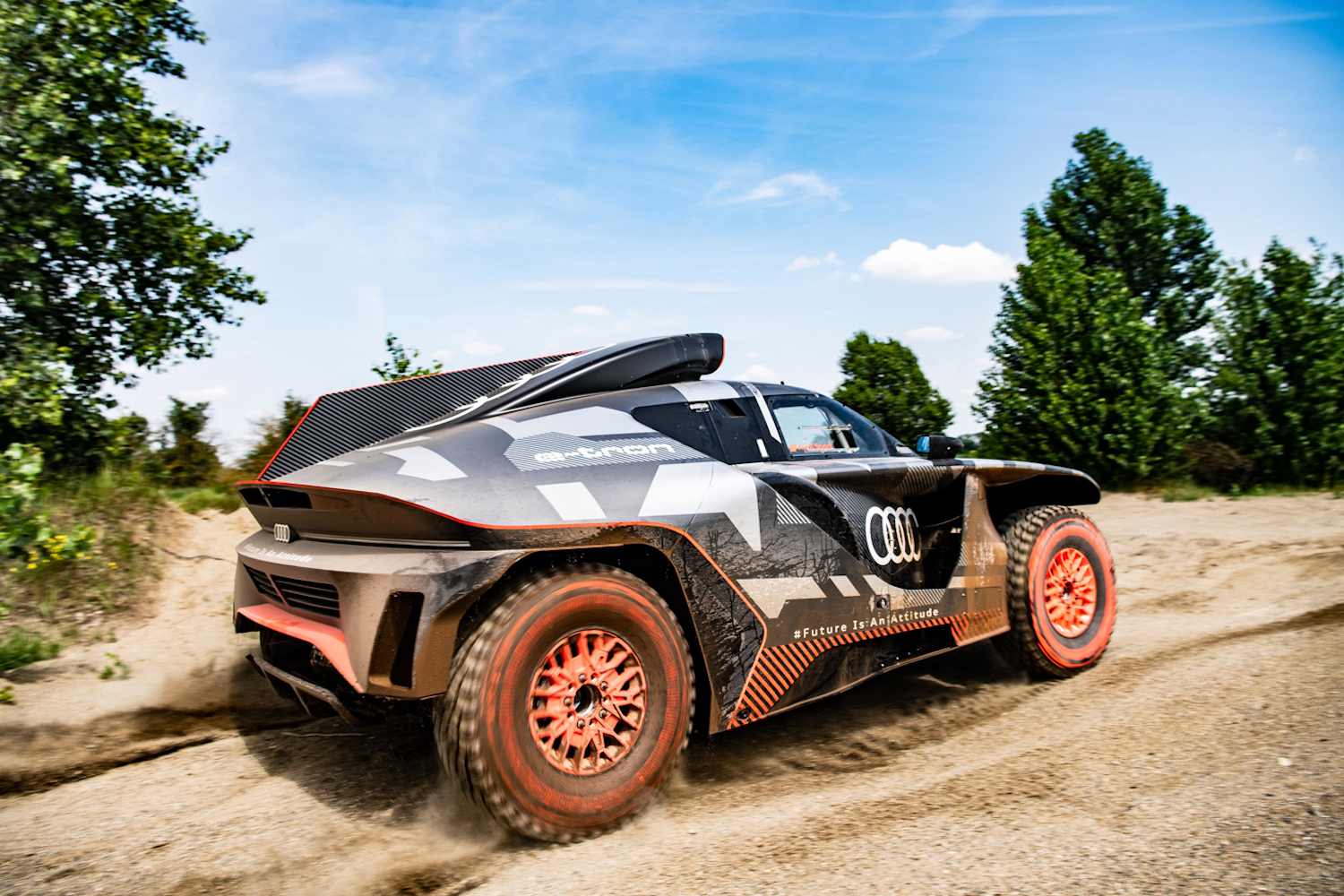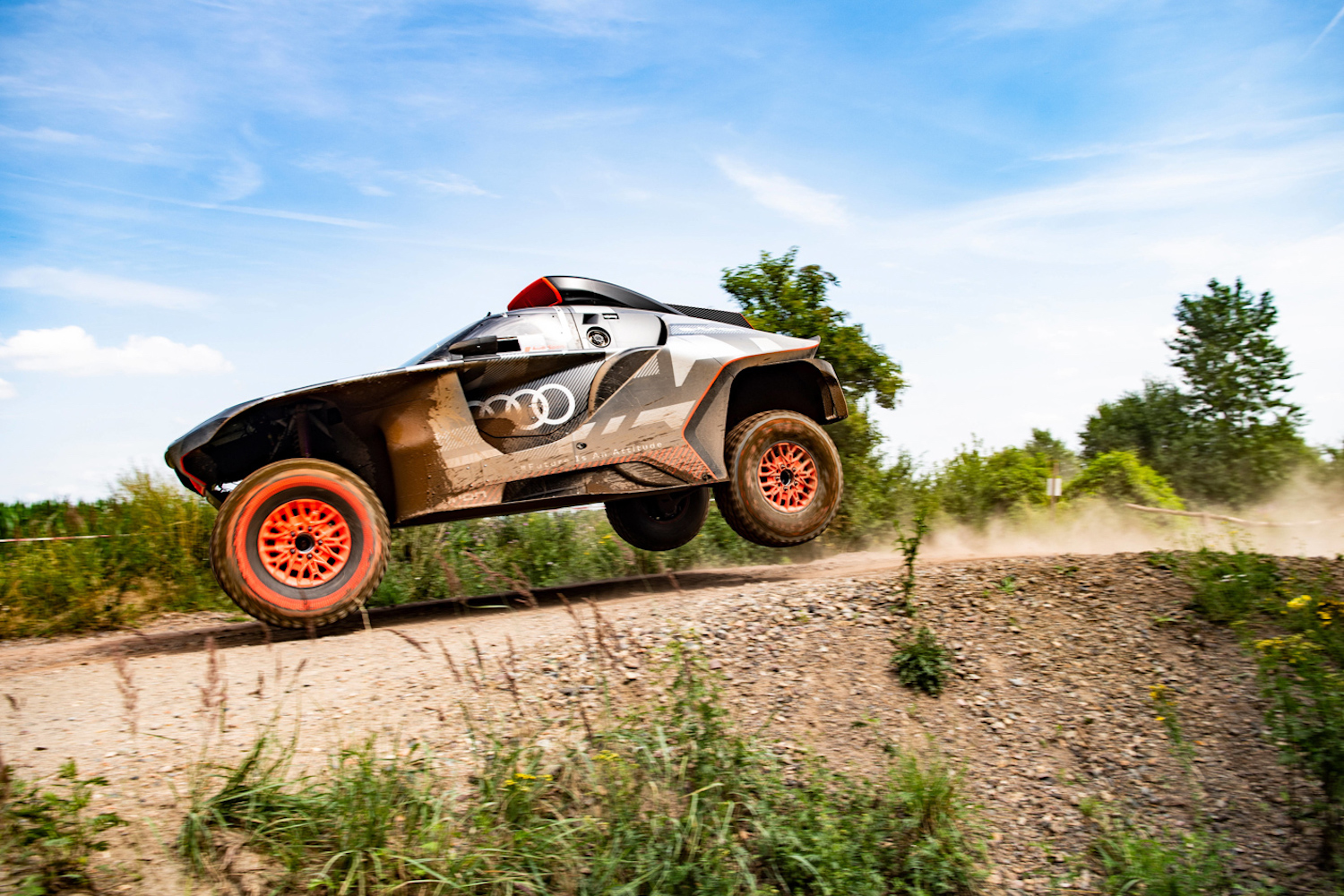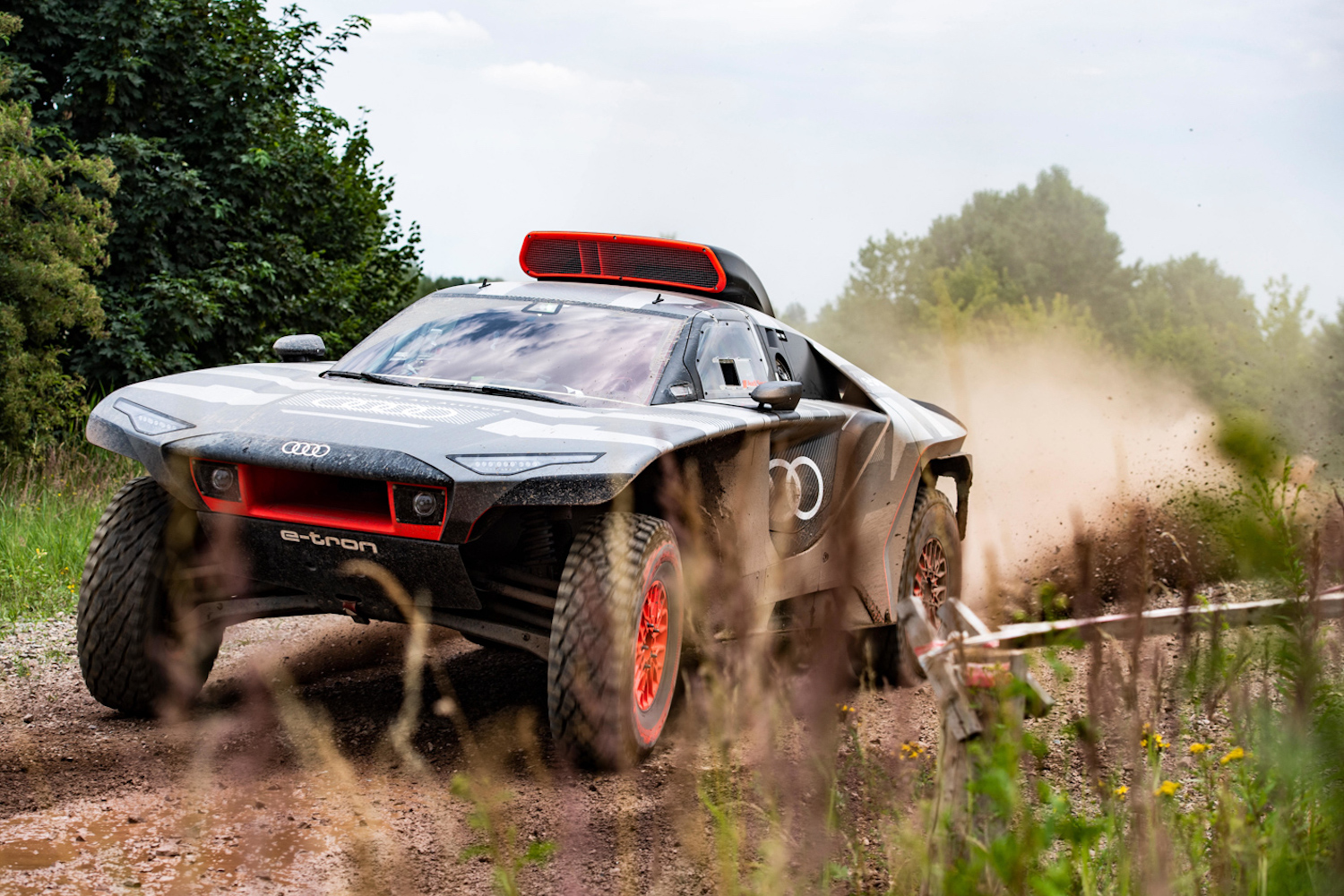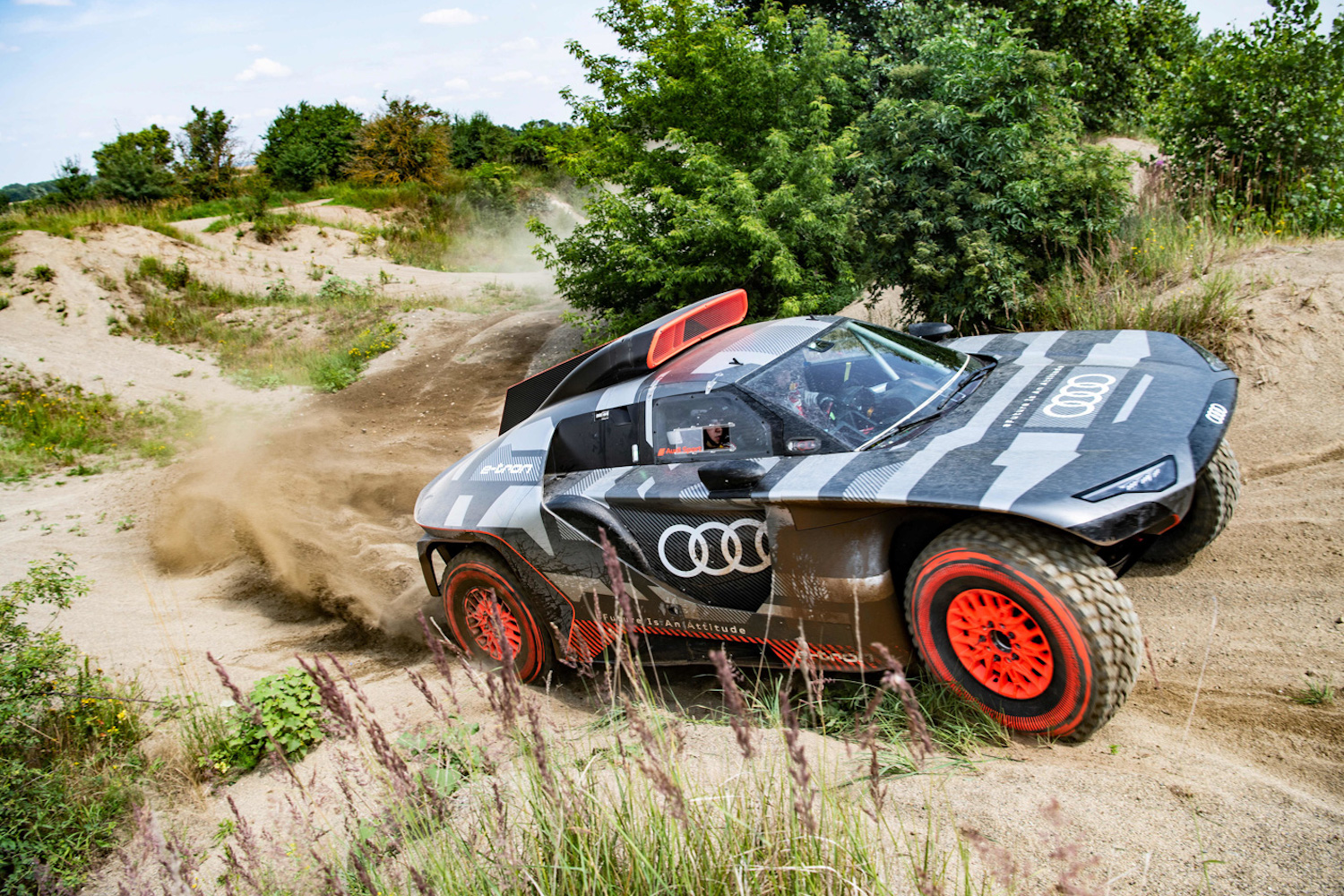Audi, having conquered the motorsport challenges of Le Mans, rallying, Formula E, and IMSA sports cars (and having flirted, occasionally, with the idea of an F1 team) is looking for a new racing mountain to climb and has, literally, found one.
800km daily mileage
This is the Audi RS Q e-tron, and it's going to be taking on the fearsome Dakar off-road rally in January. So far, so like many others - Mitsubishi, MINI, Porsche to name but a few have taken on the Dakar rally. Audi's doing it differently, though. The RS Q is electric...
Well, partially. A fully-electric powertrain wouldn't have the range to complete a full Dakar event - each daily section is some 800km, and there aren't many fast chargers in the Saudi Arabian desert. "That's a very long distance," says Andreas Roos, responsible for the Dakar project at Audi Sport. "What we are trying to do has never been done before. This is the ultimate challenge for an electric drivetrain."
So, the RS Q is a range-extender, not a purely electric vehicle. While the wheels are driven by electric motors, powered by a battery pack, that battery pack is kept charged by a TFSI petrol turbo engine, which spins away at 4,500rpm to 6,000rpm. That makes it highly efficient, with Audi claiming that it sips just 200 grammes of fuel for every kWh charged.
Compact, lightweight battery
On each axle, there's an electric motor lifted from the current Audi e-tron FE07 Formula E racer, only lightly modified for Dakar use. There's a third motor which is there purely to charge the battery, and to help scavenge as much charge as possible when braking. The battery itself has a mere 50kWh capacity and weighs just 370kg. "The battery is also a proprietary development that we have realised together with a partner," says Stefan Dreyer, Head of Development at Audi Sport for motorsport projects. "As engineers, we basically see development potential in every component. But in terms of the drivetrain system, we have already achieved a system efficiency of over 97 per cent in Formula E. There's not much more room for improvement. The situation is quite different with the battery and energy management. This is where the greatest development potential lies in electromobility in general. What we learn from the extremely challenging Dakar project will flow into future production models. As always, we are also working closely with our colleagues from road car development on this project."
There's only one gear, and Audi has replaced a mechanical centre differential with a 'virtual' one - the car's software works out how to apportion torque between all four wheels. It's a long way from the Quattro's Torsen coupling...
Total power? 680hp (500kW) although Audi says it's currently wrangling with the organisers of the Dakar to see exactly how much of that can be used in the competition - the RS Q might be pegged back by the rule book.
Futuristic styling
"The Quattro was a gamechanger for the World Rally Championship. Audi was the first brand to win the Le Mans 24 Hours with an electrified drivetrain. Now, we want to usher in a new era at the Dakar Rally, while testing and further developing our e-Tron technology under extreme conditions," says Julius Seebach, Managing Director of Audi Sport GmbH and responsible for motorsport at Audi. "Our RS Q e-tron was created on a blank sheet of paper in record time and stands for Vorsprung durch Technik."
Visually, the Audi RS Q e-tron also differs significantly from conventionally-powered Dakar prototypes. "The vehicle looks futuristic and has many design elements that are typical of Audi," says Juan Manuel Diaz, Team Leader of Motorsport Design at Audi. "Our aim was to symbolise Vorsprung durch Technik and the future of our brand."
The Dakar Rally entry is being run in conjunction with Q Motorsport. "Audi has always chosen new and bold paths in racing, but I think this is one of the most complex cars that I have ever seen," says team principal Sven Quandt. "The electric drivetrain means that a lot of different systems have to communicate with each other. Besides reliability, which is paramount in the Dakar Rally, that's our biggest challenge in the coming months." Quandt compares Audi's Dakar project to the first moon landing: "Back then, the engineers didn't really know what was coming. It's similar with us. If we finish the first Dakar event, that's already a success."
The RS Q had its first short test run in July, and between now and January, Audi will be entering it in national cross-country rallies so as to put some testing miles under those big wheels. "This project's schedule is extremely packed and challenging," says Andreas Roos. "Less than twelve months have passed since the project officially started. We had to begin the development while the regulations for alternatively-powered vehicles had not even been finalised yet. And all of the development took place during the Corona pandemic. You mustn't underestimate that either. What the team has achieved so far is unique. The roll-out was a very special moment for everyone."

